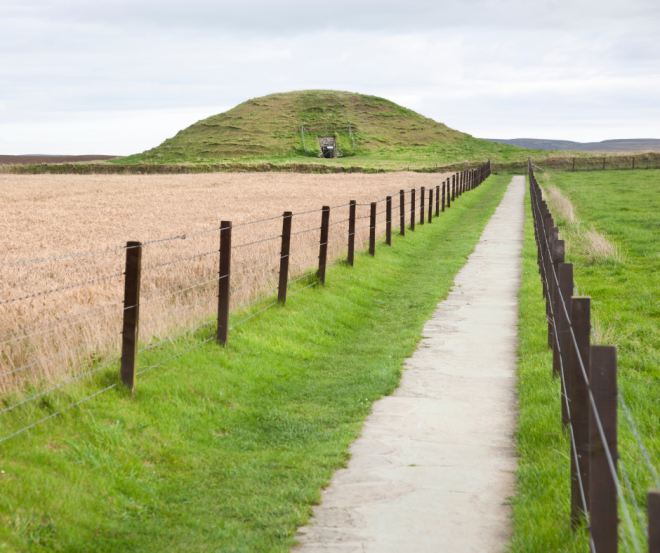New report highlights walking and cycling habits in Orkney

An all-new report has revealed for the first time how many people are walking, wheeling and cycling in Orkney, as well as bringing to light the barriers preventing more Orcadians from using active travel.
Orkney Travel Matters, which is published by Sustrans in partnership with Orkney Islands Council and supported by funding from Transport Scotland, has found that 54% of residents walk or wheel at least five days a week, making it the most frequent mode of travel in the islands, with driving at 48%.
Sustrans is the custodian of the National Cycle Network – the UK-wide network of over 12,000 miles of signed paths and routes for walking, wheeling, cycling and exploring outdoors.
The pilot report is the first of its kind carried out by Sustrans Scotland in an island setting, and the charity hopes to support partners in carrying out similar assessments in other islands and rural areas. The report reveals the potential for many more local journeys in Orkney to be made by active travel, as 41% of residents living in villages said they do not currently cycle but would like to.
Report findings
70% of residents identified the provision of more footpaths, pavements and walking routes between towns and villages as the most helpful infrastructure measures to help them walk, wheel or cycle further, while 63% of residents said they would find improving the behaviour of people driving cars useful to help them start cycling, or cycle more. Results also show that most people in Orkney (53%) would like to see more government spending on walking and wheeling in their local area, while 55% would like more investment in cycling.
Real-life experiences
The report partners have collected real-life stories from people across Orkney who choose to walk, wheel and cycle for their everyday journeys. One such contributor, Kirkwall-based Adele Lidderdale, explained how switching to an active school run has had a positive impact on the family:
“Our child has additional support needs, so that active journey into school really helps him in his day because once he has done that bit of moving around first thing it makes it easier for him to concentrate.
“During the school run, there are other families who are walking and cycling as well. That time on the way to and from school to catch up with other parents and friend groups is another big benefit for us. So, there are loads of advantages to making these journeys by bike or on foot.”
Working towards a safer, better-connected community
Karen McGregor, Director, Sustrans Scotland, said:
“I’d like to thank the people of Orkney who gave us their time to take part in this, the first ever assessment of walking, wheeling and cycling on the islands.
“The evidence of this pilot report is clear - Orcadians want to see investment in safer choices which give them more freedom to walk, wheel and cycle more often.
“They want to improve the behaviour of people driving cars, making the roads safer for their young people to travel along; and they want better links with public transport links.”
She added: “Orkney has already made progress towards making this a reality. In the last two years, the Arcadia Park and Papdale Park developments have provided active travel routes and green space for residents in Kirkwall to enjoy.
“The data presented by the report, and the success of these projects, shows that Orkney Islands Council has the backing of the public to deliver on their vision of a safer, better-connected community for everyone to walk, wheel and cycle around.”
Unprecedented understanding
Councillor Kristopher Leask, Chair of Development and Infrastructure committee at Orkney Islands Council said:
“I’m delighted to introduce our Orkney Travel Matters report. The data in this report gives us an unprecedented understanding of what the Orkney public think about walking, wheeling and cycling – and what needs to be done to make things better.
“Active travel, which involves getting active for our everyday journeys by walking, wheeling or cycling supports good physical and mental health, offering both an accessible and convenient form of exercise. In turn, it plays an important role in reducing the burden on our health services.
Enabling more active travel will also help connect people across Orkney. Accessible and safe active travel routes change how we interact with our local places and each other, fostering a greater sense of local ownership and pride, whilst helping to boost social connection and the local economy.”




